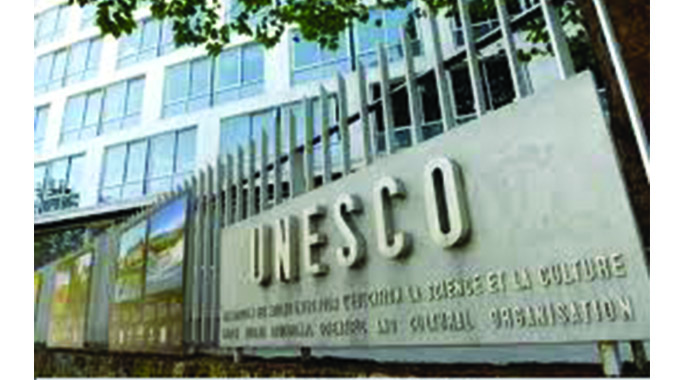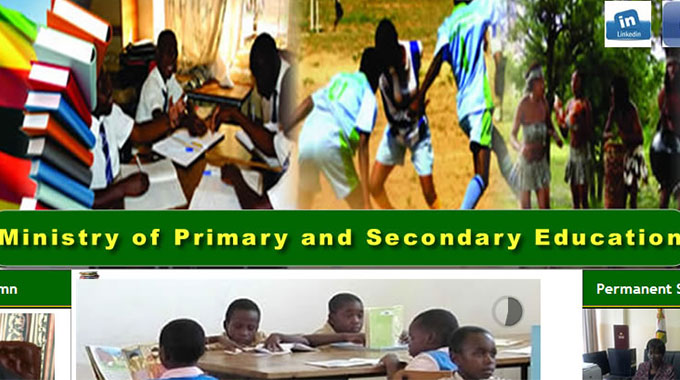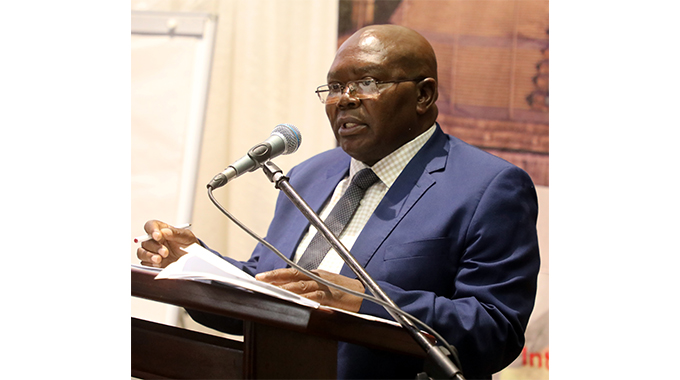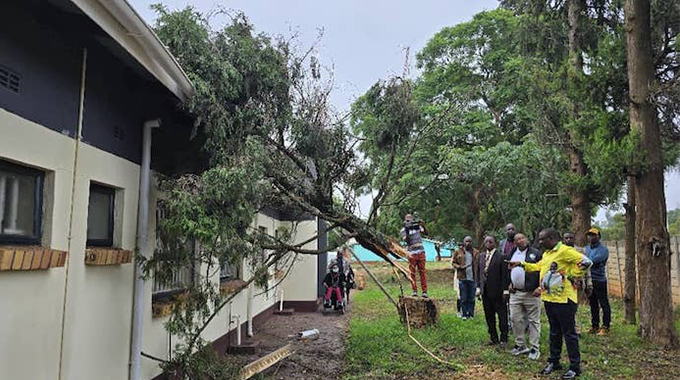Call for language Act, Board

Patrick Chitumba – [email protected]
THE Speaker of Parliament, Advocate Jacob Mudenda, has said there is a need for a Language Act and a robust language board to achieve cultural consummation and socio-economic development.
Adv Mudenda also said a National Language Policy (NLP) must also be put in place.
He noted that a sound national language policy accommodates multilingualism and ethnolinguistic pluralism where no one language is overbearing over other languages.
The Speaker of Parliament said this as the guest of honour during the launch of the African Languages Week commemorations at the Midlands State University (MSU) main campus in Gweru yesterday running under the theme: “African Languages for sustainable food security, cultural and socio-economic development for the Africa we want.”
The event was held under the auspices of the Ministry of Youth, Sport, Arts and Recreation in partnership with the National Language Institute at MSU and is a precursor of the National Culture Month to be launched by President Mnangagwa on Saturday in Binga, Matabeleland North.
He said a Language Act must be promulgated to legally buttress the language policy.

Midlands State University (MSU)
“For our vernacular languages to be able to help citizens achieve sustainable food sovereignty, cultural consummation, and socio-economic development for the Africa we want, we have to urgently put in place the following, a sound National Language Policy which accommodates multilingualism and ethnolinguistic pluralism where no one language is overbearing over other languages so that linguistic equity and justice are tenable, a Language Act must be promulgated in order to legally buttress the National Language Policy and a robust Language Board which is inclusive should be established urgently,” said the Speaker of Parliament.
He said a Publishing House should also be immediately established at the NLI to publish dictionaries for all officially indigenous recognised languages and publish disaggregated textbooks and literature books to be used from Grade One to tertiary levels.

Unesco
“The Ministries of Education should embark on a rigorous curriculum development for the entire education sector in respect of the officially recognised indigenous languages,” he said.
“Universities and Colleges should embark on systematic research on the growth and development of the officially recognised indigenous languages more than what they are doing now. Concerted efforts should be put in place to train qualified teachers to teach the official indigenous languages at all levels of our education sector.”
The Speaker of Parliament said internal and external resource mobilisation strategies should be undertaken to have sufficient funding and resources for the implementation of the multilingual and multicultural education policy.

President Mnangagwa
In 1997, Zimbabwe, he said, hosted the UNESCO conference in collaboration with the Intergovernmental Conference on Language Policies in Africa (ICLPA), which resulted in the Harare Declaration affirming that each country should formulate an inclusive Language Policy.
“Guidelines for Language Policy formulation should be sanctioned by legislative action for ease of legal enforceability. Every country’s policy framework should be flexible enough to allow each community to use its language side-by-side with other languages while at the same time giving provision for multilingualism. A language policy formulating and monitoring body/institution should be established within each country (Unesco 1997),” he said.
In this regard, the African Union, Adv Mudenda noted, developed several protocols aimed at promoting the preservation and promotion of indigenous languages and knowledge systems.

The Ministry of Primary and Secondary Education
He said one of the key protocols in this regard is the African Charter on the Rights and Welfare of the Child.
“The protocol recognizes the right of every child to receive education in their mother tongue. This is a salient protocol which acknowledges the pedagogical and psychological need to use the mother tongue in the teaching and learning of pupils during their primary education as this is the most formative years of the learners,” said Adv Mudenda.
He highlighted that there is a complicated link between African languages and sustainable food security, cultural and socio-economic development for an Africa wanted by its people.
He said the mere translation of the National socio-economic development agenda is no guarantee for Africa’s economic prosperity adding that the people’s mindset must be attuned to their African psychological and philosophical template of motivation encapsulated in their proverbial idioms.
“We ought, therefore, to preserve our indigenous languages, cultures and heritage in a manner that will promote sustainable food security, cultural and socio-economic development for the Africa we want although I prefer the Africa we need,” said Adv Mudenda. — @pchitumba1












Comments